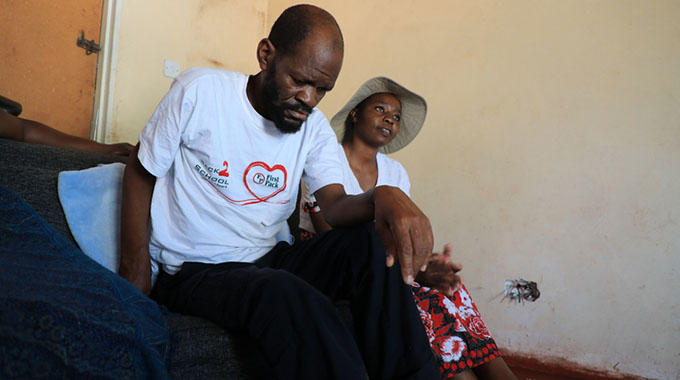Editorial Comment: Due diligence critical in recruitment

CONTINUOUSLY increasing competition in many fields of employment has given rise to incidence of candidates providing fake degrees and certificates for a job profile, and the wonders of modern graphics software make the manufacture of fake documents so much easier.
And then there are genuine outfits who issue paper qualifications that are totally useless. Not every country has a body that sets basic standards, although Zimbabwe does, the Zimbabwe Council for Higher Education (Zimche), which has just been hit by finding one of its top managers had fake qualifications.
To prevent fraud, employers must now invest effective measures for verifying qualifications when hiring new candidates; they set the bar so that at least they can see you should be shortlisted and in any case for many jobs certain basic skills are required.
The Herald has over the years carried a number of stories on people who use fake qualifications to get jobs, with the latest being the case of a chief operating officer at Zimche who reportedly faked O’Level and professional qualifications.
Zimche, being the regulator that supervises higher education, had no option, but to part company with the top manager after the discovery.
This was after Zimche found via Zimsec that the manager had just one O’Level and that the Higher Examination Council (Hexco) dismissed her tertiary qualifications as fake.
The worrying point is that the discovery did not come in a normal job application process.
Both those who originally employed the person and then elevated her to the top post did not pick up the anomaly until the internal audit department embarked on a skills audit recently.
And the internal audit manager in that methodical way such people operate was ticking off the boxes when he came to documents that did not look quite right when seen in a decent light. So he had them checked, a routine process.
While the internal audit section deserves a pat on the back for the discovery, the human resources section was exposed for sleeping on duty. The internal audit section had to do the checks normally done before hiring by human resources officers.
There is need for a comprehensive audit on qualifications and skills in the civil service to weed out undeserving workers.
Sometimes, for some posts, experience counts for more than qualifications and in former times there was far more training on the job than in a tertiary college.
All that can be taken into account by the appointing authority, the critical point is that the person or committee that makes an appointment must know exactly what the candidate for employment knows and does not know and what formal qualifications the candidate possesses.
Fake qualifications, fake resumes of employment and the like cannot be allowed.
More officers in the Ministry of Higher and Tertiary Education are still under investigation and a comprehensive report on the countrywide audit will be handed over to Professor Amon Murwira at the end of the exercise.
How on earth can a highly-rated quality regulator like Zimche blindly recruit and promote someone with one O’Level to a senior management post? It is even more amazing when you think about it in that this person was not obviously incompetent, and could easily have quickly rewritten their O’ Levels and grabbed a couple of decent qualifications in night school.
Such laxity in human resources sections is now widespread and recently, a referral hospital in Harare allowed a bogus doctor to attend to patients and access the hospital for seven months.
The young man had a white coat, a stethoscope and an air of confidence. So no one bothered checking; he looked as though he belonged. Admittedly he was not being paid, except perhaps free meals or something, but still.
It puts people’s lives at risk and management, especially the human resources and security sections, must wake up from slumber and prevent the embarrassing occurrences.
Most businesses and Government units have checks in place because of other threats; it looks as though a young man in a white coat could have wandered through Parirenyatwa stealing everything not nailed down.
Failure to verify documents and to properly supervise staff not only pose a threat to the employer for hiring the wrong employee, but also causes injustice to the deserving candidates.
Qualifications verification is a part of the employees’ background check and it should be done with much seriousness. Vetting academic and professional credentials of candidates ensures the relevancy and authenticity of the documents.
It builds confidence in the employer for his employees and ensures that the most rewarding positions are held by the rightly qualified applicants.
As part of the vetting process, the human resources officers have to check the credibility of institutions awarding certificates because some are dubious.
Some fake and unapproved institutions are also issuing out genuine paper of zero value that may be used by some fraudsters in job applications.
Some people claim to have their degrees from foreign institutes. Firms should cross-check the details provided.
Companies may call the institutes or check with the university websites. Organisations can even hire third-party verification services to do background checks for their employees. The third-party companies generate reports and forward them to the first party.
Local engineers recently developed an educational verification software to curb the fraud, but it was met with some kind of resistance. The software, which is a platform where all local and international credible institutions may be posted for easy detection of bogus institutes and qualifications, was marketed at almost all the country’s universities but there were no takers.
Such a qualification verification software is critical and companies must implement it to efficiently authenticate educational records of candidates.
It enables human resources management to verify the academic documents of the applicants easily, effortlessly and in no time.
Zimche, universities, colleges, companies’ human resources departments, employers, police and other investigating arms must work together to curb the rot.









Comments